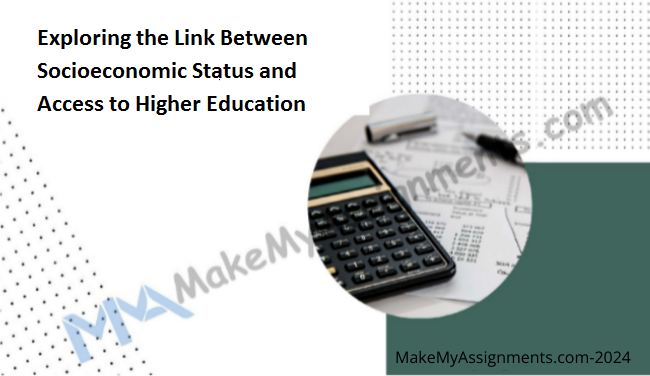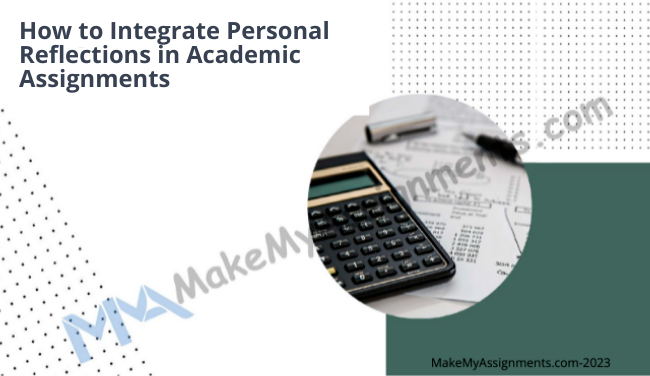
Exploring the Link Between Socioeconomic Status and Access to Higher Education
In the pursuit of higher education, many factors come into play, and one of the most significant is socioeconomic status (SES). Socioeconomic status encompasses a range of elements, including income, education level of parents, occupation, and access to resources. Unfortunately, it often serves as a barrier for many individuals aspiring to pursue higher education. In this blog, we’ll delve into the intricate relationship between socioeconomic status and access to higher education, exploring the challenges it presents and potential solutions to foster greater equity in educational opportunities.

Understanding the Link
Financial Barriers
One of the most apparent connections between socioeconomic status and higher education access is financial. The cost of tuition, fees, books, and living expenses can be daunting for individuals from lower socioeconomic backgrounds. Even with financial aid and scholarships, many students still face significant financial burdens, leading to increased reliance on loans or even deterring them from pursuing higher education altogether.
Educational Background
Another aspect of SES influencing access to higher education is the educational background of one’s family. Students whose parents have not attended college may lack the guidance and support necessary to navigate the complex application processes and requirements. Additionally, they may not have access to valuable resources such as tutoring, test preparation courses, or college preparatory programs, putting them at a disadvantage compared to their peers from more privileged backgrounds.
Cultural and Social Capital
Cultural and social capital, which refers to the networks, connections, and knowledge acquired through social interactions, also play a role. Individuals from higher SES backgrounds often have access to influential networks and mentors who can provide guidance and opportunities that may not be available to those from lower SES backgrounds. This disparity in social capital can significantly impact one’s ability to access higher education and secure desirable opportunities.
Addressing the Challenges
Financial Aid and Scholarships
Expanding financial aid and scholarship programs is crucial in mitigating the financial barriers to higher education. Universities and governments can work together to increase the availability of need-based grants and scholarships, as well as merit-based awards for students demonstrating academic excellence. Additionally, offering financial literacy programs can empower students to make informed decisions regarding their finances and reduce the burden of student loan debt.
Outreach and Support Programs
Implementing outreach and support programs targeted at underserved communities can help bridge the gap in educational attainment. These programs can provide mentorship, tutoring, college preparatory workshops, and resources tailored to the specific needs of students from lower socioeconomic backgrounds. By offering guidance and support throughout the academic journey, these initiatives can increase the likelihood of success for students who may face additional challenges.
Holistic Admissions Processes
Adopting holistic admissions processes that consider the broader context of applicants’ backgrounds can help promote diversity and inclusion in higher education. Instead of relying solely on standardized test scores and GPA, admissions committees can take into account factors such as socioeconomic status, extracurricular involvement, personal challenges overcome, and contributions to their communities. This approach allows for a more comprehensive evaluation of applicants’ potential and achievements, regardless of their socioeconomic background.
The link between socioeconomic status and access to higher education is undeniable, yet it is not insurmountable. By addressing the financial, educational, and social barriers that disproportionately affect individuals from lower SES backgrounds, we can strive towards a more equitable and inclusive higher education system. Through targeted interventions, increased support, and a commitment to diversity, we can ensure that all individuals have the opportunity to pursue their educational aspirations and reach their full potential, regardless of their socioeconomic status.
In the quest to address the challenges associated with socioeconomic status and access to higher education, innovative solutions are essential. MakeMyAssignments, a leading educational support platform, stands poised to play a crucial role in leveling the playing field for students from diverse socioeconomic backgrounds. Here’s how MakeMyAssignments can help bridge the gap and empower students to pursue their academic aspirations.
Financial Assistance and Affordability
MakeMyAssignments understands the financial strain that higher education can place on students, particularly those from lower socioeconomic backgrounds. To alleviate this burden, MakeMyAssignments offers affordable academic assistance services, including assignment help, tutoring, and exam preparation, at competitive rates. By providing cost-effective solutions, MakeMyAssignments ensures that financial constraints do not hinder students’ access to essential educational support.
Academic Guidance and Support
Navigating the complexities of the academic landscape can be daunting, especially for students without access to robust support networks. MakeMyAssignments fills this gap by offering personalized academic guidance and support tailored to the unique needs of each student. Whether it’s clarifying concepts, providing feedback on assignments, or offering study tips, MakeMyAssignments’ team of experienced tutors and mentors are dedicated to empowering students to succeed academically.
Accessible Resources and Tools
MakeMyAssignments recognizes the importance of access to resources and tools in leveling the playing field for all students. Through its online platform, students can access a wealth of educational resources, including study materials, reference guides, and interactive learning modules. Additionally, MakeMyAssignments offers tools such as plagiarism checkers and citation generators to help students maintain academic integrity and excel in their studies.
Community and Mentorship Opportunities
Building a supportive community and fostering mentorship opportunities are integral to promoting academic success, particularly for students from underrepresented backgrounds. MakeMyAssignments facilitates peer-to-peer collaboration and mentorship through its online forums and discussion groups, where students can connect with peers, share insights, and seek advice. Moreover, MakeMyAssignments partners with experienced educators and industry professionals to provide mentorship and guidance to students, empowering them to navigate their academic and professional journeys with confidence.
In the pursuit of enhancing access to higher education and promoting educational equity, MakeMyAssignments emerges as a valuable ally for students from diverse socioeconomic backgrounds. By offering affordable academic assistance, personalized support, accessible resources, and community engagement opportunities, MakeMyAssignments empowers students to overcome barriers and achieve their academic goals. As a trusted partner in education, MakeMyAssignments is committed to fostering a more inclusive and accessible learning environment where every student has the opportunity to thrive, regardless of their socioeconomic status.





